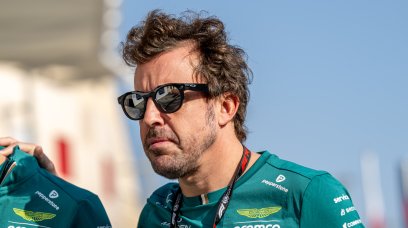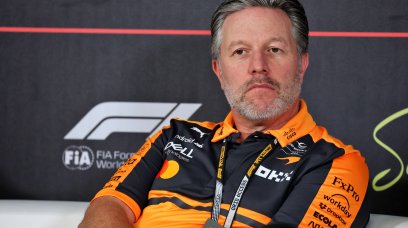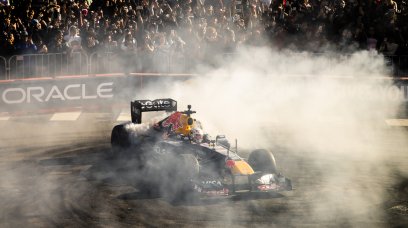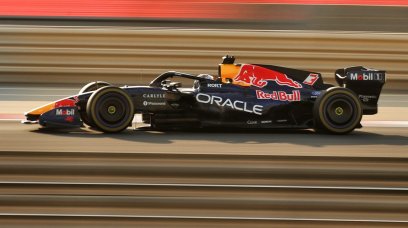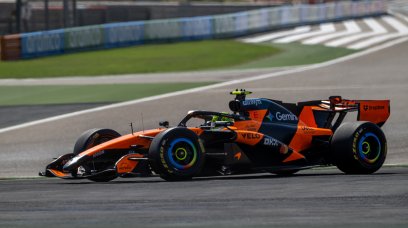Haas team principal Ayao Komatsu has revealed nine F1 teams are pushing back against the budget cap increase that has been written into the 2026 financial regulations. F1's budget cap has been set at $135 million since the 2023 campaign - however the allowance is set to jump to $215m in just over one year's time. The FIA has raised the cap to consider the higher salaries in Switzerland, with Audi operating out of Sauber's headquarters in Hinwil when it joins the grid. Audi argued that under the previous budget cap, it had less room to spend on car development compared to other teams due to the higher staff salaries. However, Komatsu questioned the exception for Audi, insisting it is unclear where the cut-off point for the deviation lies. “Why does a team based in Switzerland have an exemption? Everybody chooses where to set up the team,” Komatsu told media including RacingNews365 . “Between London and Oxford and the north of England, prices are different. So where do you stop? Where do you draw the line? “And if you look at those things, you have to look at all the social benefits and everything, and also people living in Switzerland, the reasoning can be different. “I remember a long time ago trying to hire somebody from Sauber, but this guy loved skiing, loved mountains, so he didn't want to come to England.”
The budget cap was initially introduced in 2021 as a means to even the field after major spending gaps opened up between the top teams and backmarkers. It has allowed a smaller team like Haas to have a closer spending output on its car compared to those fighting at the front of the field. However, the increase could once again allow some teams to have an advantage. Komatsu revealed that at the most recent F1 Commission meeting, all teams bar Sauber opposed the budget cap change. “It's very dangerous to look up one dimension and say, ‘Okay, it's more expensive here’,” he said. “You can just look at the price of a beer or something, and then saying, ‘Okay, it's more expensive, therefore we should give the exemption. You're free to set up wherever you want.” “In the F1 Commission meeting, apart from Sauber, funnily enough, everybody is against it. So I don’t know why FIA is just completely pushing for it.”
The FIA point of view
FIA single-seater director Nikolas Tombazis recently outlined the reasons behind the change over the United States Grand Prix weekend in Austin, naturally citing the regulation change as 'fair'. "I will say that in a democracy where there are nine wolves and one sheep, you can see who will be on the table for the nine wolves,” Tombazis said. “While we want to have consensus, democracy and involvement, it is our responsibility to try to be fair, and we’ll have opportunities every five or six years or so to make adjustments that are aiming for fairness where, maybe within the competition of Formula 1, it’s difficult to get the necessary levels of majorities amongst teams to support change. “It became obvious to us that salaries in certain countries are much much higher, and the cost of living is much higher in some countries. I see it myself, I live in Geneva. When I go to the supermarket, I think about it. “We felt that for roughly to equal the cost cap, a team based in a high-level cost country like Switzerland would end up having approximately 30 per cent or even 40 per cent fewer people working on the car, which we felt was fundamentally unfair. “This could either lead to us trying to take some actions from a regulatory point of view, or it would eventually mean that teams could not operate, and a team like Sauber would have to close and move to another country, which we don’t think is the right way for a world championship to operate. “So that’s why there’s an adjustment in the financial regulations for ‘26. We’ll basically adjust the salaries, the salary that gets considered in the cost cap, by some factors that get determined by OECD [Organisation for Economic Co-operation and Development] data." Tombazis outlined the fact the OECD data is "available to the world" and that it "is very consistent with the salary differences that exist, even within the Formula 1 context and amongst the engineers and teams." He added: “So it’s not just OECD data. We have overriding and compelling evidence, also from what teams are paying their aerodynamicists, designers, shop-floor workers or anything, and all of that points in the same direction. “Therefore, I think this regulation is completely fair. I will also say that we plan to enhance it a bit more, to give it a bit more transparency so that teams that are maybe worried that something, I don't know, underhand, is happening, would be convinced. “If you looked at the data, I don’t think anyone would doubt the fairness of this regulation.”
Most read
